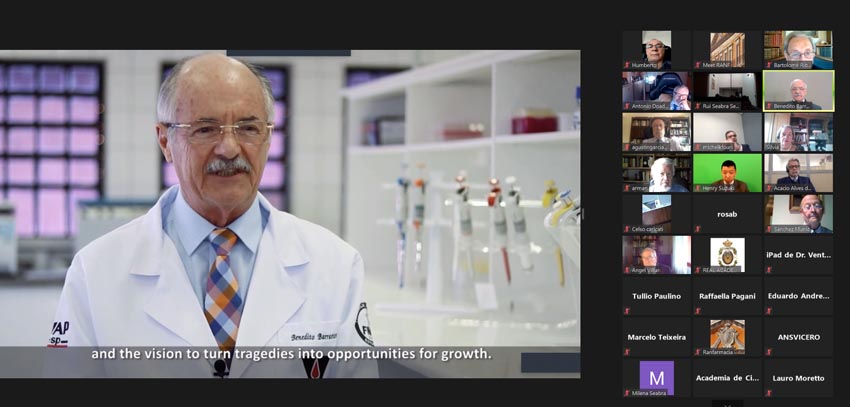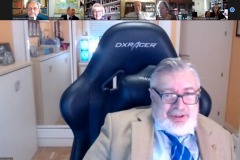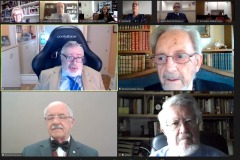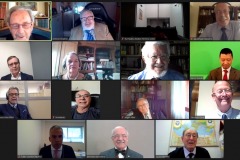Benedito Barraviera
https://orcid.org/0000-0002-9855-5594
BENEDITO BARRAVIERA
Under graduated in Medicine from Botucatu Medical School of São Paulo State University – UNESP (1977), Brazil, specialized in Tropical Medicine by the School of Medicine of University of São Paulo (1979), Master (MSc 1984) and Doctor (Ph.D. 1986) in Internal Medicine by UNESP. He was Associate (1993) and Full Pro-fessor (1999) of Infectious Diseases at Botucatu Medical School – UNESP. Now he is a Researcher at The Center for the Study of Venoms and Venomous Animals at UNESP (CEVAP), Editor-in-chief of The Journal of Venomous Animals and Toxins including Tropical Diseases (www.jvat.org) – Impact Factor Web of Science, JCR® 2019 =2.262, CiteScore Scopus 2019 = 3,60, Cites/Doc Scopus 2019 = 2.474, First quartile (Q1) at Animal Science and Zoology, and Full Professor of Infectious and Parasitic Diseases at the Botucatu Medical School – UNESP. He has experience in Toxinology, Tropical Medicine, Clinical Research, and Scientific Pub-lishing working mainly in the following Disciplines: Infectious and Parasitic Diseases, Toxinology (envenoma-tions by venomous animals), Clinical Research (clinical trials), Scientific writing, and publishing. Founder and Director of The Center for the Study of Venoms and Venomous Animals at UNESP (CEVAP), (Director in 1993-1997, 2006-2014, and 2018-2021), Pro-Dean of University Extension (2001-2004), and President of the Brazilian Association of Scientific Editors – ABEC (2008- 2012). From 2005 he became coordinator of the Re-search Group on Toxinology certified by UNESP and CNPq. From 2014 approved and became deputy co-ordinator of the National Institute of Science and Technology of Wildlife Science Center (WSC), CNPq 465429/2014-9. Currently, coordinate two-phase I/II clinical trials named respectively: Use of the heterolog-ous fibrin biopolymer in the treatment of chronic venous ulcers and, Use of the new apilic antivenom to treat 29/06/2021 Benedito Barraviera (0000-0002-9855-5594) – ORCID | Connecting Research and Researchers https://orcid.org/0000-0002-9855-5594/print 2/58
massive Africanized honeybee (Apis mellifera) attacks. The fibrin biopolymer and apilic antivenom have been in development for more than 20 years in partnership with Vital Brazil Institute of Rio de Janeiro (RJ), Brazil. In 2018, the Ministry of Health approved the construction of the Biological Drug Samples Factory for Clinical Trials at CEVAP-UNESP. The agreement 873706/2018 was established between Caixa Econômica Federal and UNESP, and the construction begins briefly. In 2019, he was appointed as a Full Member of the Brazilian Academy of Pharmaceutical Sciences and in 2020 as a Correspondiente Extranjero de la Real Academia Nacional de Farmacia de España. In 2021 he became a Fellow Researcher (PQ-2) of the Brazilian National Council for Scientific and Technological Development (CNPq. Proc. No. 306339/2020-0).







